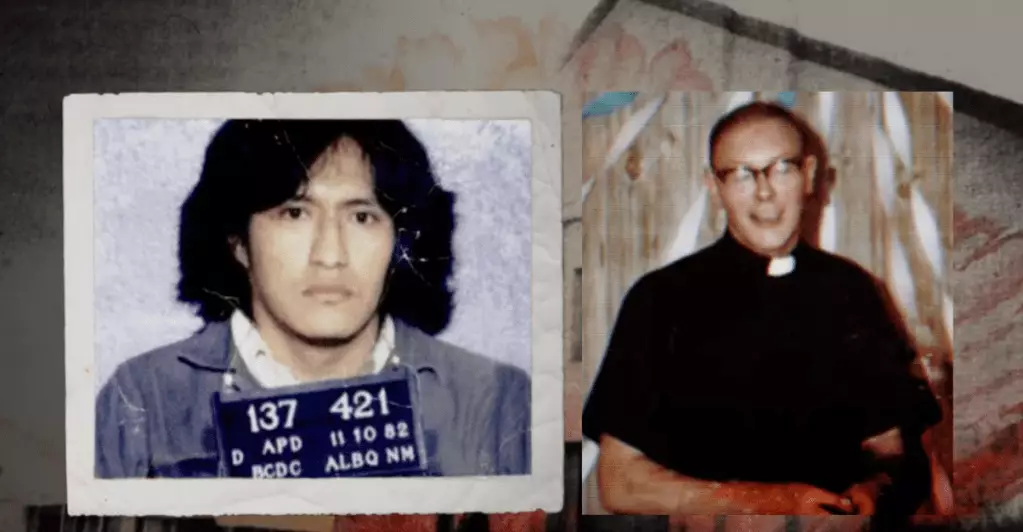In the annals of American criminal justice, tragic stories often emerge, but few resonate as hauntingly as the case of Father Patrick Ryan and James Harry Reyos. The 1981 murder of a priest in Odessa, Texas, set in motion not just a deadly crime, but an unsettling series of events that would forever alter the lives of many, particularly one innocent man. Through a disturbing intersection of homophobia, racism, and systemic failure, Reyos, a closeted Apache man, was wrongfully convicted and sentenced to two decades behind bars, navigating the treacherous waters of a prejudiced legal system that was quick to vilify those who differ from the accepted norm.
As the documentary *Night in West Texas* delves into this chilling chapter, it reveals not only one man’s nightmare but a broader commentary on society’s flawed reliance on stereotypes over truth. The harrowing tale exposes how biases against marginalized communities can warp the justice system, transforming any person perceived as “other” into an easy scapegoat. Reyos’ fateful encounter with the criminal justice system was not merely an isolated incident; it was emblematic of a system eager to serve its own interests rather than those of justice.
Systemic Failures and Misguided Justice
The conviction of James Reyos was engineered by a mix of incompetence and bigotry. Local law enforcement, instead of performing due diligence, seemingly benefitted from a warped narrative that cast Reyos as the ideal suspect: a closeted gay Native American man who would bear the brunt of community disdain. His background took precedence over actual evidence—or the lack thereof. This glaring miscarriage of justice highlights a concerning trend: often, the system chooses to target the most vulnerable rather than pursue an exhaustive and unbiased investigation.
In an era where modern technology was non-existent, the idea of processing latent fingerprints remained a distant concept, leading to crucial evidence being cast aside. Fast forward to 2017, when current Police Chief Mike Gerke decided to take up the mantle of justice for Reyos after being sparked by a true-crime podcast. The revelation that fingerprint technology could offer new leads is a sobering reminder of how many innocent lives may remain shackled by outdated practices and blind prejudice.
This documentary takes an unflinching look at the role of systemic racism in pushing a narrative that disregards innocence. It forces us to grapple with uncomfortable truths: How often are marginalized communities subjected to the whims of a flawed judicial system? Why do voiceless individuals continue to pay the price for a society too eager to cast judgment?
The Redemption Through Advocacy
The tides began to turn for Reyos when Gerke reopened the case, resembling a beacon of hope for many who have suffered similar fates. With the support of the Innocence Project of Texas and a dedicated team of advocates, Reyos’ struggle for exoneration reflects the incredible power of community and persistence in challenging a system that often fails those it is meant to protect. The audacity of those who stand up for the disenfranchised gives credence to the transformative potential of grassroots advocacy in the face of overwhelming odds.
Filmmaker Deborah Esquenazi, renowned for her commitment to unveiling injustices faced by marginalized groups, effectively conveys this message in *Night in West Texas*. With her work—marked by empathy and integrity—she not only brings Reyos’ story to light but also sheds critical examination on how societal narratives can be reversed. The film serves as a potent reminder that the fight for justice is not merely about individual cases, but rather about collective responsibility.
Esquenazi’s previous documentary achievements lend weight to her exploration of such disrupted lives, producing not just an entertainment piece but also a powerful commentary on resistance against a broken system. In the crafting of this narrative, she piques our awareness to question the very foundation of the institutions we are conditioned to trust.
The Resounding Impact of Storytelling
*Night in West Texas* goes beyond animation and dramatization; it is an invitation to reflection. It urges the audience to confront the realities of race, sexuality, and the painful intersections that often doom lives. As we navigate this story, the onus lies on us to ensure that such narratives do not culminate in hopelessness, but instead galvanize movements aimed at systemic reform.
The struggle for James Reyos generates significant discourse about inclusion, justice, and accountability. It challenges us to imagine a world where the lost outcomes of countless other marginalized individuals could eventually find their due recourse. Through advocacy and activism, societies prove capable of transforming sorrow into strength, injustice into awareness, and uncertainty into assured agency.

